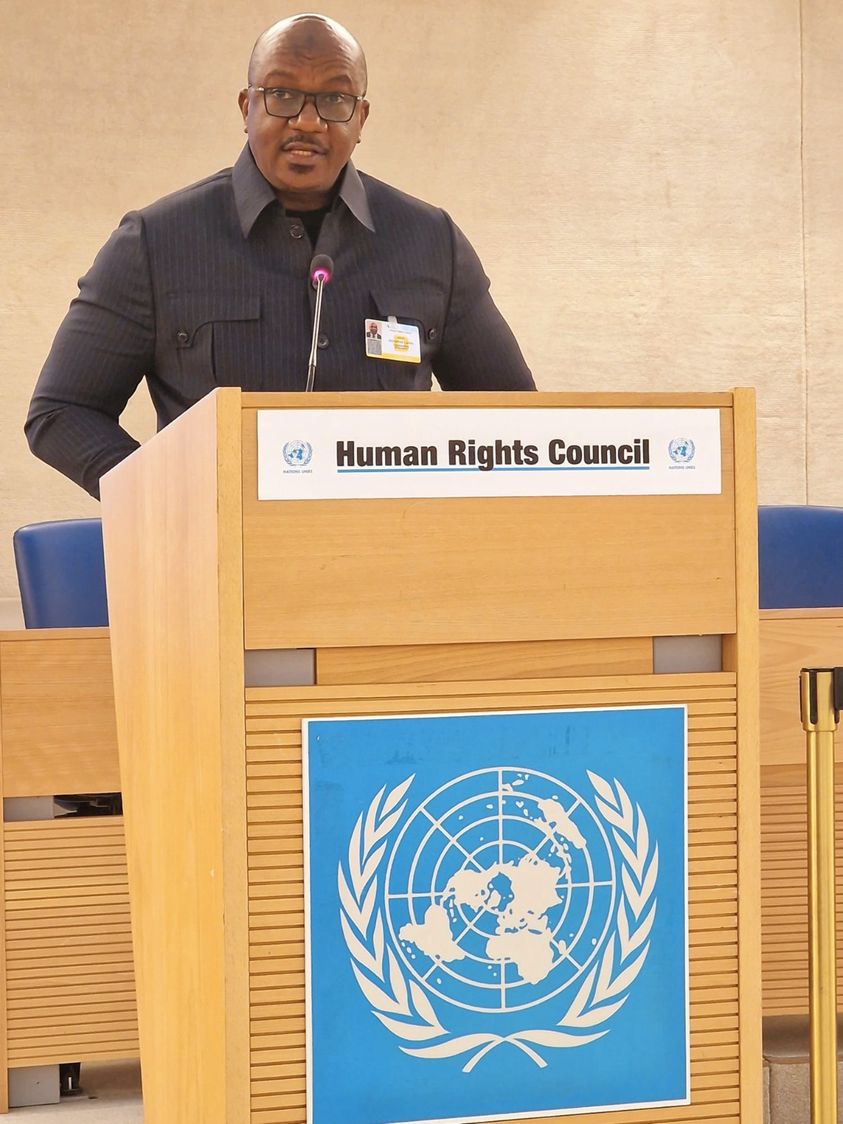The Attorney General and Minister of Justice, Mohamed Tarawalley, has highlighted the progress made in promoting and protecting human rights in Sierra Leone since the reintroduction of multiparty democracy in 1996 at the 52nd regular session of the Human Rights Council in Geneva, Switzerland.
In his address, the Attorney General and Minister of Justice, Mohamed Tarawalley, emphasized Sierra Leone’s commitment to respecting Human Rights.
He acknowledged the challenges faced by the council, including the impact of COVID-19 and political instability, but emphasized that human rights were fundamental to peace, sustainable development, and democratic consolidation. Lawyer Tarawalley reaffirmed Sierra Leone’s commitment to promoting and supporting proposals aimed at reinforcing the efficiency of the organs of the council, including its procedures and mechanisms for the promotion and protection of human rights.
He reported that Sierra Leone had made remarkable strides in promoting and protecting human rights since the reintroduction of multiparty democracy in 1996.
Under the leadership of President Julius Maada Bio, “the government has introduced legislative measures to reinforce the independence of the justice system and reforms to expand access to justice”.
He continued that, “The government has also established specialized courts to make justice not only accessible but also expeditious. There has been a considerable increase in budgetary support to the judiciary, and judicial staff have benefited from improved conditions of service to bring them in line with their counterparts in the sub-region.
In addition, lawyer Tarawalley reported that Sierra Leone had established peace and civic education commissions, while consolidating the rule of law institutions such as the Human Rights Commission, “which has recently been re-accredited with a grade A status for the third consecutive time by the Global Alliance for National Human Rights Institutions”.
Attorney General and Minister of Justice stated that “Sierra Leone recognises and is committed to gender equality and women’s empowerment as a crucial element of attaining sustainable peace and social and economic development in the country”.
In this regard, he noted, Parliament unanimously passed the Gender Equality and Women’s Empowerment Bill, signed into law by President Julius Maada Bio in November 2022. “This law guarantees improvements to women’s access to finance, employment opportunities, equal pay, maternity leave, and women’s participation and political representation”, he informed.
Lawyer Tarawalley acknowledged recommendations that were noted following the previous Universal Periodic Review cycle, especially those on the ban against pregnant girls, sexual and gender-based violence, criminal libel, and the death penalty.
“In this regard, a significant human rights milestone was achieved in the abolition of the death penalty or the repeal of the Criminal Libel Law, which was a great stride. Sierra Leone believes in the sanctity of life and the death penalty was an inhumane form of punishment that violates rights to life and all human rights standards. Therefore, in July 2021, Parliament unanimously abolished the death penalty by passing the Abolition of the Death Penalty Act”, he informed his audience.
Mohamed Tarawalley concluded by assuring the council of his delegation’s firm support of its individuals’ mandates and Sierra Leone’s commitment to promoting and protecting human rights guided by the principles of universality, objectivity, and non-selectivity.


